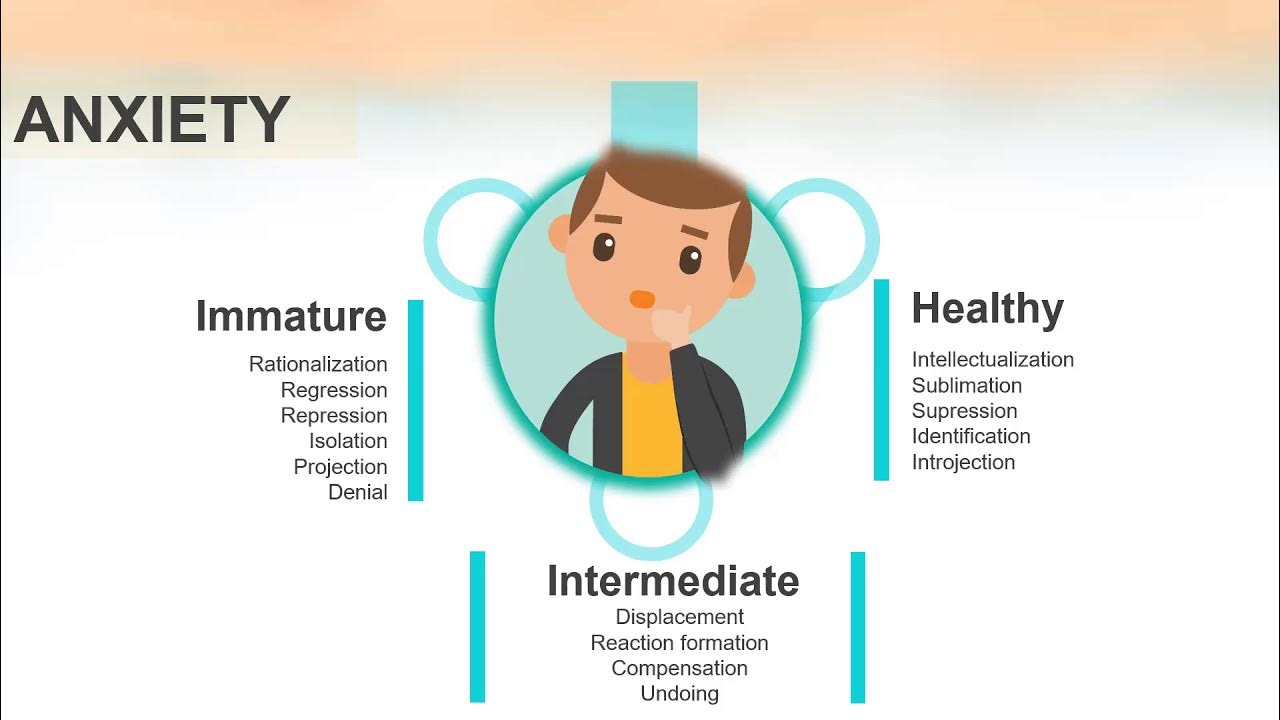general adaptation syndrome model
Summary
TLDRThe General Adaptation Syndrome model, proposed by Hans Selye, outlines three phases of stress response: alarm, resistance, and exhaustion. Initially, stress triggers the release of cortisol and epinephrine, preparing the body for immediate threats. Prolonged stress leads to the resistance phase, characterized by elevated blood pressure, heart rate, and muscle tension, and a suppressed immune system. If stress persists, the body enters the exhaustion phase, where organs and functions become impaired, potentially leading to heart disease, diabetes, and other serious health issues, highlighting the detrimental effects of chronic stress on physical health.
Takeaways
- 🧠 Stress has significant negative impacts on both psychological and physical health.
- 🔬 Hans Selye's General Adaptation Syndrome model explains the body's stress response in three phases: alarm, resistance, and exhaustion.
- 🚨 The alarm phase is the body's initial response to stress, involving the release of hormones like cortisol and epinephrine.
- 🏃♂️ Epinephrine increases heart rate, blood pressure, breathing, strength, and sugar release for immediate action.
- 🤕 Cortisol aids in pain reduction and immune system regulation during the stress response.
- 🏋️♀️ The resistance phase occurs with prolonged stress, leading to constant elevation of blood pressure, heart rate, and muscle tension.
- 🚫 Chronic stress suppresses the immune system and can lead to irregular blood sugar levels.
- 💀 The exhaustion phase is marked by the body's inability to cope with the prolonged stress, potentially leading to disease.
- 🏥 Long-term stress can cause various health issues, including heart disease, diabetes, and musculoskeletal problems.
- ⚰️ Chronic stress can be fatal, as it may lead to severe health conditions like heart attacks, strokes, and even cancer.
Q & A
What is the General Adaptation Syndrome model proposed by Hans Selye?
-The General Adaptation Syndrome model is a theory proposed by Hans Selye that characterizes the stress response system as having three distinct phases: the alarm phase, the resistance phase, and the exhaustion phase.
What are the two stress-related hormones released during the alarm phase?
-During the alarm phase, the stress response system releases cortisol and epinephrine (adrenaline), which together produce a series of changes within the body to cope with immediate threats.
What physiological changes does epinephrine initiate in response to stress?
-Epinephrine initiates an increase in heart rate, blood pressure, breathing, strength, and the release of sugar from the liver to produce fuel for the muscles.
How does cortisol help the body during the stress response?
-Cortisol plays a role in reducing pain, decreasing inflammation, and regulating the immune system by decreasing immune response.
What is the significance of the resistance phase in the stress response?
-The resistance phase is characterized by the prolonged release of stress hormones, leading to constant elevation of blood pressure, heart rate, muscle tension, and irregular blood sugar levels, as well as suppression of the immune system.
What are the potential long-term stressors that can lead to the resistance phase?
-Long-term stressors can include difficult relationships, financial insecurity, challenging jobs, family illnesses, and many other potential sources.
What happens to the body during the exhaustion phase of the stress response?
-During the exhaustion phase, the body can no longer cope with the elevated metabolic functions, leading to disease as different organs and functions become impaired due to the long-term effects of epinephrine and cortisol.
What are some of the diseases that can result from the exhaustion phase of the stress response?
-Diseases that can result include heart disease, diabetes, back and neck problems, and a weakened immune system leading to infectious and non-infectious diseases such as influenza and cancer.
How does the stress response system get triggered according to the script?
-The stress response system is triggered every time we perceive we are in trouble, whether it's an emergency or non-emergency events such as a fight with a romantic partner.
What is the potential outcome of long-term stress as described in the script?
-The potential outcome of long-term stress is the development of various diseases and potentially premature death due to the body's inability to cope with the sustained metabolic changes caused by stress hormones.
Outlines

This section is available to paid users only. Please upgrade to access this part.
Upgrade NowMindmap

This section is available to paid users only. Please upgrade to access this part.
Upgrade NowKeywords

This section is available to paid users only. Please upgrade to access this part.
Upgrade NowHighlights

This section is available to paid users only. Please upgrade to access this part.
Upgrade NowTranscripts

This section is available to paid users only. Please upgrade to access this part.
Upgrade Now5.0 / 5 (0 votes)





